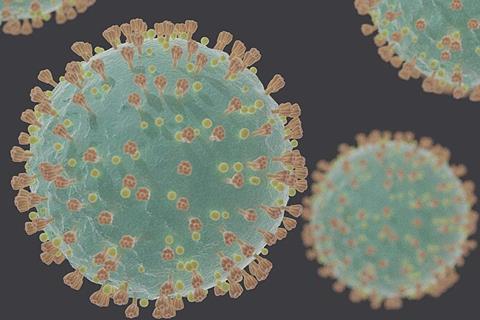The 3C-like protease (3CLpro) is a crucial target in anti-Severe Acute Respiratory Syndrome Coronavirus 2 (SARS-CoV-2) drug design. The authors of this article performed high-throughput synthesis of catechol derivatives from the bioactive catechol-terminal alkyne scaffold A4, by using modular click chemistry.

Subsequently, two rounds of SARS-CoV-2 3CLpro inhibition screening was conducted and seven compounds for synthesis and further efficacy validation were selected.
Compound P1-E11 had potent inhibitory effects toward SARS-CoV-2 3CLpro (IC50 = 2.54 ± 0.46 μM); exhibited good selectivity toward the human cysteine proteases cathepsins B and L; and demonstrated superior anti-SARS-CoV-2 potency (EC50 = 4.66 ± 0.58 μM) with low cytotoxicity (CC50 > 100 μM) in A549-hACE2-TMPRSS2 cells.
Mechanism confirmed
The irreversible covalent mechanism of P1-E11 was confirmed through time-dependent experiments, enzyme kinetic studies, and dilution and dialysis assays.
The binding affinity between P1-E11 and SARS-CoV-2 3CLpro with a KD value of 0.57 μM was validated through surface plasmon resonance (SPR) experiments.
Molecular docking provided insights into the binding mode of P1-E11 to the target protein. This study demonstrates the feasibility and efficacy of modular click reactions in natural-product-based structural modifications and presents a novel approach for leveraging this strategy in antiviral drug discovery.
The study appears in Acta Materia Medica journal.







No comments yet